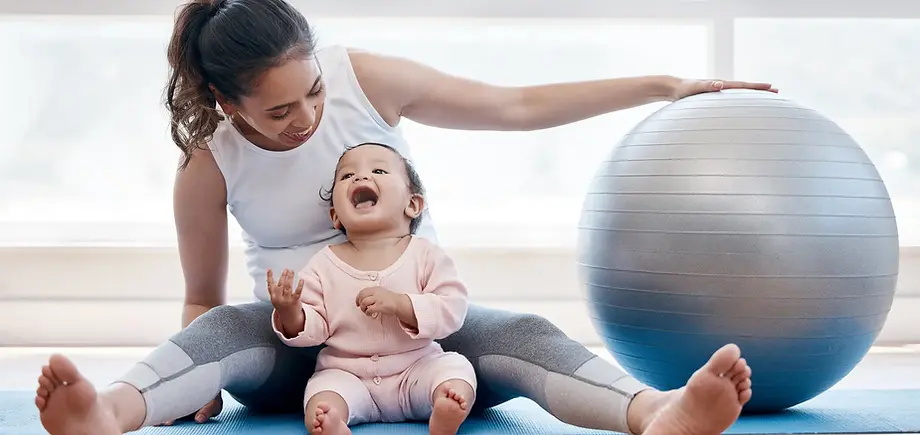
The Science Behind
Early Development
Mommy & Me Classes
For You and Your Baby
Join us for a fun and engaging class designed for babies aged 6 to 18 months! Through music, song, dance, toys, and other stimulating resources, we will help develop your little one's gross motor skills while fostering a deeper connection between you and your baby, all from the comfort of your home. Let's create joyful moments together as your baby explores and learns!

1
Brain Development & Neural Growth
Rapid Synaptogenesis
During this period, the brain forms millions of new synaptic connections per second. This is part of a process called experience-expectant development, where the brain builds pathways in anticipation of common human experiences (e.g., vision, hearing, motor movement).
Between 6–18 months, certain sensory and motor skills are especially sensitive to environmental input—consistent exposure to language, movement, and social interaction supports long-term cognitive function.
2
Motor Development
Gross Motor Skills
-
6–9 months: Sitting without support, rolling over, starting to crawl.
-
9–12 months: Pulling to stand, cruising along furniture.
-
12–18 months: Walking independently, climbing, beginning to run.
Fine Motor Skills
Transition from raking grasp to pincer grasp (thumb + forefinger), enabling self-feeding and object manipulation.
Underlying Science
These gains result from neuromuscular maturation—cerebellar growth improves balance, and motor cortex refinement allows more controlled movement.
Sensory Development
3
Vision
By 12 months, visual acuity is close to adult levels, and depth perception is well developed.
Hearing
Babies are tuned to the sounds of their native language and start losing the ability to distinguish non-native phonemes.
Sensory Integration
The brain begins coordinating multiple senses—essential for balance, hand-eye coordination, and understanding the environment.
Attachment Formation
Secure attachment emerges through consistent, responsive caregiving. The hormone oxytocin plays a role in reinforcing social bonding.
